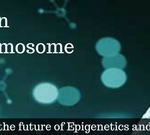Good news about the healthcare industry’s readiness for ICD-10 has been few and far between, but a noticeable shift in attitude began to emerge during the end of the first day of this year’s annual convention of the American Health Information Management Association (AHIMA).
During an afternoon education session about the good, bad, and reality of ICD-10 adoption, one of the presenters stressed the fact that healthcare organizations lagging behind still have the chance to make up the difference in their preparation for ICD-10. “If you haven’t started, you can still get all of these things done,” Danielle Reno, MHA, CHC, CCS, CCS-P, ICD-10 Director at Sutter Health told the audience in the Sidney Marcus Auditorium at the Georgia World Congress Center.
“It’s going to be a little bit more complicated and you probably need a bigger team to work on it,” she continued. “But there’s a lot of planning that goes along with it, especially if you’re within a big organization or an academic medical center. It can sometimes be more challenging to get your timelines squished a little bit tighter.”
To be fair, Sutter Health is coming at things from an advantageous position. The healthcare organization has been working on ICD-10 for three years with the original 2013 deadline as its target. It will go live with its EHR-enabled ICD-10 environment on May 31, 2014 (although no claims will be sent), which will give physicians the opportunity to become familiar with this new approach to coding months in advance of the October go-live for the entire healthcare industry.
In line with Oct. 1, 2014, Sutter Health began its physician education for ICD-10 this past summer using a “trifold approach” that aims at building awareness and familiarity of ICD-10 among physicians through mixture of outreach, physician champions, and targeted online and mobile education offerings.
Most important of these projects was getting physicians to understand why ICD-10 was important to Sutter Health:
We wanted to get our chiefs of staff, chief medical officers, and our physician organization leadership onboard and aware of what the timelines were, what the financial impact was, and what type of education we were talking about and our timeline and budget associated with that. That was the first step for our organization — trying to have a lot of different conversations took many, many months to try to influence buy-in around physician education
According to Reno, what’s most important is getting physicians to understand the “downstream impacts” of ICD-10 for their health system or hospital financially and in terms of quality. Refusing to adapt to this changing environment could lead to negative consequences throughout the clinical environment that providers would eventually come to terms with. “If you don’t do this well in our hospital environment, you won’t have the OR suite, equipment, and nurses that you need to provide the services,” she added.
An important component of driving this point home to physician involves clinical documentation and those professionals beyond physicians associated with it. “Clinical documentation is a big effort for Sutter Health, and we were leveraging those employees as change-agents for the ICD-10 program. They’re the ones at the elbow of physicians, so if you haven’t thought about that model that may be something to think about going forward.”
Although these professionals will be instrumental in helping physicians come up to speed, in the end the key to success is through having physicians to convince physicians of the importance of ICD-10. For Sutter Health, this is coming and will continue to come in the form of physician champions and peer-to-peer education.
The good news is that healthcare organizations should be able to make up for a lack of preparation for ICD-10. The bad news is that they will end up paying for it. But considering that not doing means decreases in reimbursements and negative effects on business of healthcare, it should be worth it — not just for October 1st, but the days and months to follow.

























